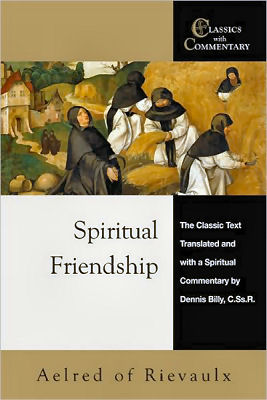
|
Posted August 10, 2009
Book: Spiritual Friendship: Aelred of Rievaulx Editor and Commentator: Dennis Billy, C.Ss.R. Christian Classics, Ave Maria Press, Notre Dame, IN. 2008. Pp. 147 An Excerpt from the Introduction:
An Excerpt from the Book: Aelred gives sound advice not only on how we should enter into friendship, but also on how we should end it. He is adamant that true friendship is eternal, but understands that sometimes people mistake a much weaker bond for a profound spiritual tie. For this reason, he draws an important distinction between true and apparent friendship, between a bond of intimate companionship that is true and lasting and one that is ephemeral and short-lived. He counsels prudence to those of us who find ourselves in a situation where what we thought was a sound spiritual friendship was found to be otherwise. Rather than ending the relationship abruptly, he advises us to unravel the friendship “stitch-by-stitch” over an extended period of time. In doing so, there will be no hard feelings between those involved and, while no longer friends, they will be able to relate to one another with dignity and mutual respect. Aelred reminds us, moreover, that even though we will no longer share sentiments of affection, security, and happiness with a person we once called a friend, we are still bound to relate to him or her at all times in a loving manner. Table of Contents: Book One — The origin of friendship Book Two — The fruition and excellence of friendship Book Three — The conditions and characters requisite for unbroken friendship |
|
